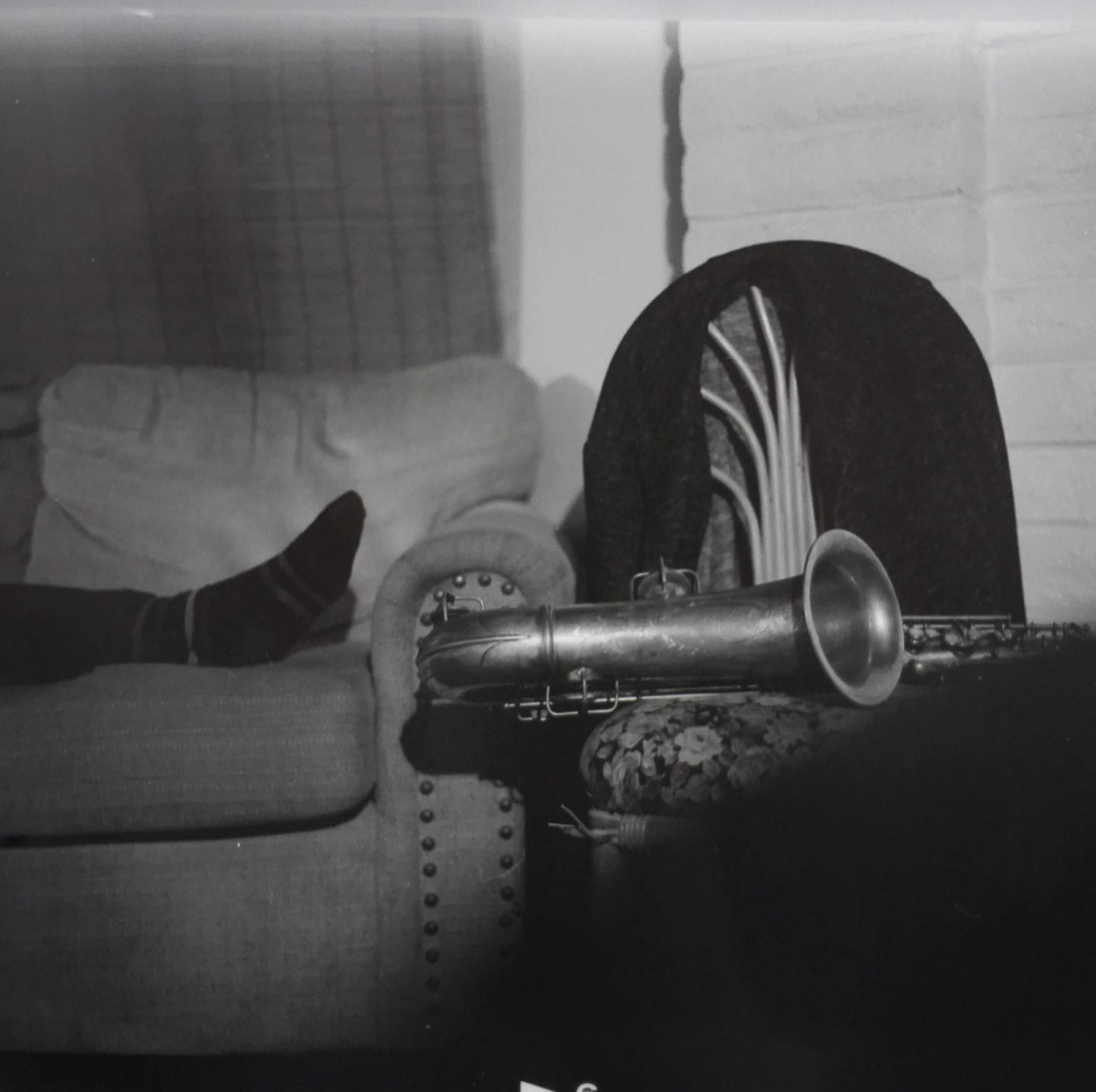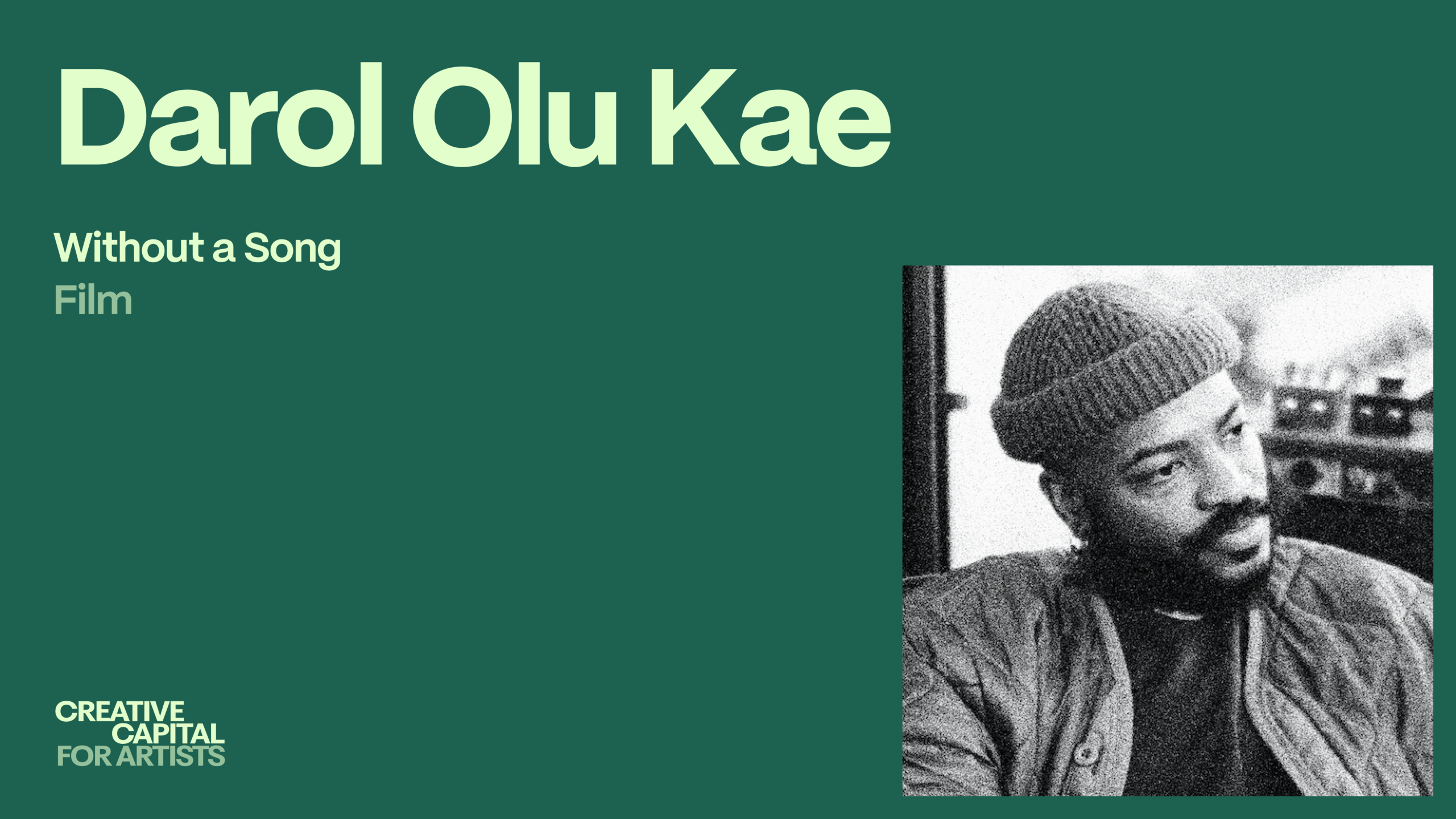
Without a Song
Without a Song
Darol Olu Kae
Darol Olu Kae
Without a Song tells the story of an aging, “free jazz” musician’s return to Los Angeles after a decades-long absence to reunite with old friends whom he was forced to abandon due to tragic circumstances. The film opens on a beautiful oyster bank in Southern Denmark where our protagonist, Ramsey (78), visits every autumn seeking a modicum of pleasure and solitude. Far removed from South Central, he now lives a quiet, secluded life on the outskirts of Copenhagen. We don’t know why Ramsey fled America for Europe all those years ago but his weathered face can’t help but disclose subtle signs of shame and a longing for home.
What started as a brief sojourn overseas has somehow ballooned into nearly 40 years abroad in self-imposed exile. Ramsey keeps to himself, plays his horn, and goes for long scenic walks in idyllic spaces with views of nature. However, when a conservative government program designates his mostly Muslim neighborhood a “hard ghetto” and threatens to demolish the council building where he stays, Ramsey must decide whether or not to stay and fight the controversial policy or move back to Los Angeles. He reluctantly chooses the latter. Once back at home, Ramsey strolls around the city at night in hopes of easing his restlessness and muses on his tendency to choose flights of escape over friendship. Ramses eventually sets out to repair old wounds from his past while secretly battling a mysterious illness that makes it impossible for him to play his instrument. In the absence of musical relief, Ramsey must find ways to live out the very principles that he played about: love, friendship, and a sense of liberation.
Darol Olu Kae aptly refers to Without a Song as a “closing-of-age” film interested in themes of human frailty, alienation, intergenerational tension, and the unrelenting passage of time, all from within the context of a musical tradition that is often described as dying or near death itself.
Film/Moving Image, Narrative Film
2025

About Darol Olu Kae
Los Angeles, California
 Darol Olu Kae is a filmmaker from and based in Los Angeles, California. Kae began his filmmaking journey as a creative researcher, writer and editor for prominent directors such as Kahlil Joseph, AG Rojas and Arthur Jafa. His highly collaborative, research-based approach to storytelling draws from local, community histories, utilizing real-life stories to build introspective films that carry the poetry and power of black existence. With a keen eye for detail and a profound understanding of human nature, Kae’s films employ an alchemic approach to narrative development and often explore themes such as intergenerational tension, self-discovery, home and human frailty. Ultimately, Kae embraces a kaleidoscopic mode of filmmaking that attends to the quiet complexities of black life and lyrically renders them visible on screen.
Kae’s films have screened at festivals and institutions worldwide including Brooklyn Academy of Music (BAM), BlackStar Film Festival, Film at Lincoln Center, International Film Festival Rotterdam (IFFR), Locarno Film Festival, MoCA Los Angeles, SXSW Film Festival, and Sundance Film Festival. Kae was awarded the Pardino d’oro for Best International Short Film in 2020 at the Locarno Film Festival for his film i ran from it and was still in it. And in 2021, i ran from it… earned Special Jury Recognition for Poetry at the 2021 SXSW Film Festival. Kae has been featured in Filmmaker Magazine’s “25 Faces of Independent Film” and was named a MacDowell Fellow. Without a Song is his first feature.
Darol Olu Kae is a filmmaker from and based in Los Angeles, California. Kae began his filmmaking journey as a creative researcher, writer and editor for prominent directors such as Kahlil Joseph, AG Rojas and Arthur Jafa. His highly collaborative, research-based approach to storytelling draws from local, community histories, utilizing real-life stories to build introspective films that carry the poetry and power of black existence. With a keen eye for detail and a profound understanding of human nature, Kae’s films employ an alchemic approach to narrative development and often explore themes such as intergenerational tension, self-discovery, home and human frailty. Ultimately, Kae embraces a kaleidoscopic mode of filmmaking that attends to the quiet complexities of black life and lyrically renders them visible on screen.
Kae’s films have screened at festivals and institutions worldwide including Brooklyn Academy of Music (BAM), BlackStar Film Festival, Film at Lincoln Center, International Film Festival Rotterdam (IFFR), Locarno Film Festival, MoCA Los Angeles, SXSW Film Festival, and Sundance Film Festival. Kae was awarded the Pardino d’oro for Best International Short Film in 2020 at the Locarno Film Festival for his film i ran from it and was still in it. And in 2021, i ran from it… earned Special Jury Recognition for Poetry at the 2021 SXSW Film Festival. Kae has been featured in Filmmaker Magazine’s “25 Faces of Independent Film” and was named a MacDowell Fellow. Without a Song is his first feature.
Darol Olu Kae is a filmmaker from and based in Los Angeles, California. Kae began his filmmaking journey as a creative researcher, writer and editor for prominent directors such as Kahlil Joseph, AG Rojas and Arthur Jafa. His highly collaborative, research-based approach to storytelling draws from local, community histories, utilizing real-life stories to build introspective films that carry the poetry and power of black existence. With a keen eye for detail and a profound understanding of human nature, Kae’s films employ an alchemic approach to narrative development and often explore themes such as intergenerational tension, self-discovery, home and human frailty. Ultimately, Kae embraces a kaleidoscopic mode of filmmaking that attends to the quiet complexities of black life and lyrically renders them visible on screen. Kae’s films have screened at festivals and institutions worldwide including Brooklyn Academy of Music (BAM), BlackStar Film Festival, Film at Lincoln Center, International Film Festival Rotterdam (IFFR), Locarno Film Festival, MoCA Los Angeles, SXSW Film Festival, and Sundance Film Festival. Kae was awarded the Pardino d’oro for Best International Short Film in 2020 at the Locarno Film Festival for his film i ran from it and was still in it. And in 2021, i ran from it… earned Special Jury Recognition for Poetry at the 2021 SXSW Film Festival. Kae has been featured in Filmmaker Magazine’s “25 Faces of Independent Film” and was named a MacDowell Fellow. Without a Song is his first feature.

